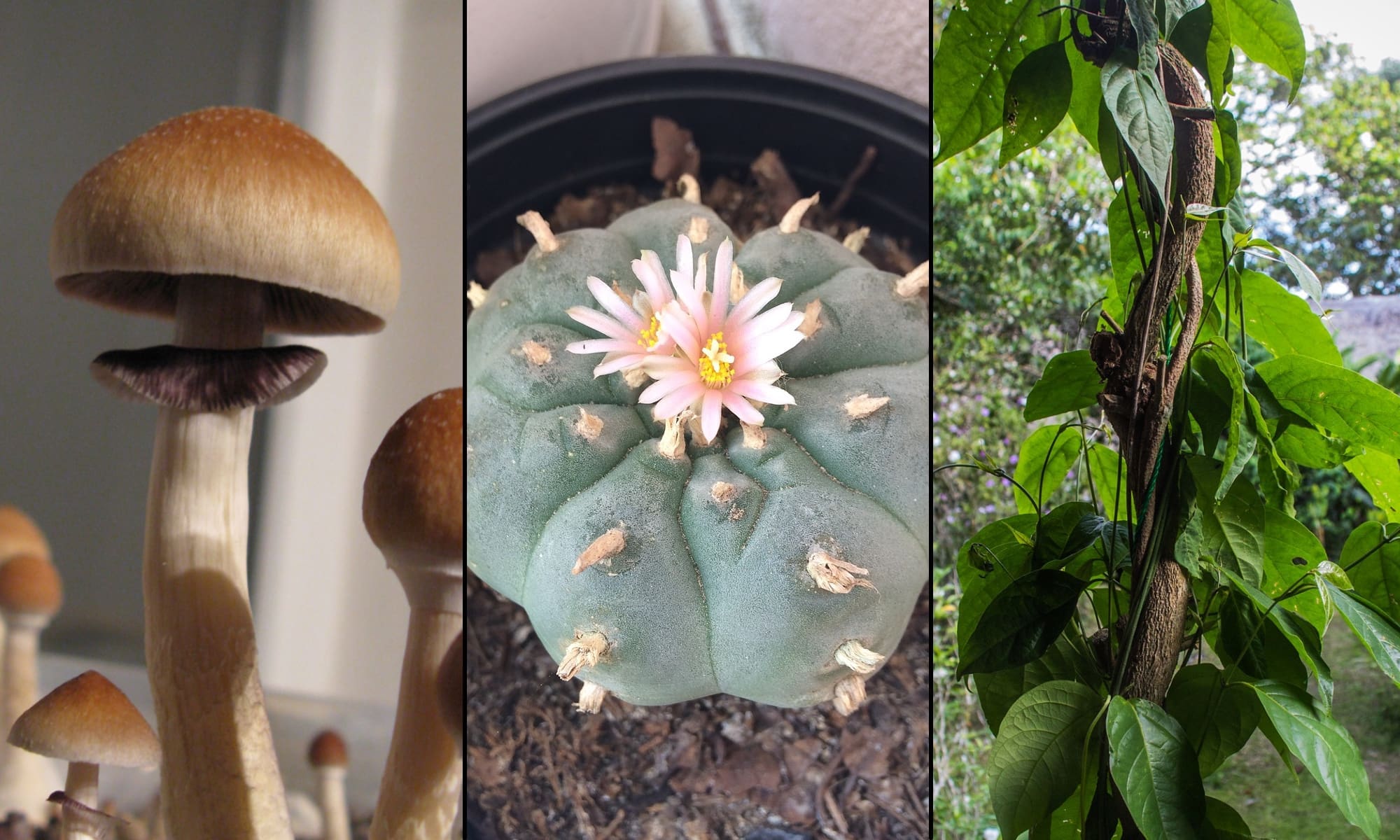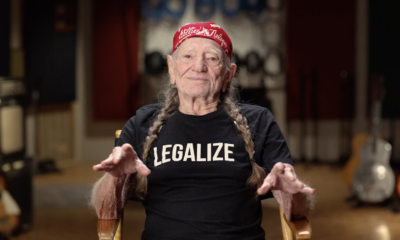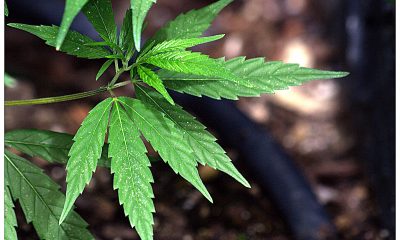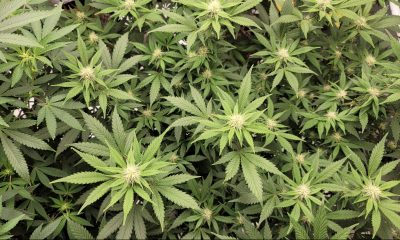Politics
Massachusetts Lawmakers Take Up Psychedelics Legalization Ballot Initiative

A Massachusetts joint legislative committee held a hearing on Tuesday to discuss an initiative that would legalize psychedelics that may appear on the November ballot if lawmakers decline to independently enact it first.
Members of the Special Joint Committee on Initiative Petitions took testimony from subject matter experts, supporters and opponents of the measure, which is being spearheaded by the campaign Massachusetts for Mental Health Options (MMHO).
This hearing comes about three months after Secretary of the Commonwealth William Galvin’s (D) office certified that activists had collected 96,277 valid signatures for the reform measure—about 20,000 more than required to force consideration by the legislature.
If lawmakers decide not to legalize psychedelics by May 1, activists would then have until July 3 to submit at least 12,429 additional valid signatures to put the proposal before voters on the November ballot.
At Tuesday’s hearing, the manager of Oregon Psilocybin Services (OPS), a division of the Oregon Health Authority (OHA) that oversees the state’s novel psychedelics program, offered neutral testimony on the Massachusetts initiative for informational purposes.
She described her state’s licensing process, training requirements for facilitators and how psilocybin is administered to clients.
“In Oregon, we understand that we must balance thousands of years of cultural and anthropological information, along with decades of scientific research, to inform our work,” she said, adding that OPS “will continue to adjust administrative rules each year and collaborate with our main partners, with licensees and with the public.”
Sam Chapman, executive director of the Healing Advocacy Fund who was the campaign manager of Oregon’s voter-approved psilocybin initiative, spoke in favor of the Massachusetts measure.
However, he recognized that “we still have a lot of work to do to continue to actually make these services affordable, especially for the populations we believe stand to benefit most.”
Jared Moffat, a spokesperson for New Approach, a national organization that is financially supporting the Massachusetts campaign, told the committee that “a lot of states across the country are looking at these types of policies—and I would expect in the next five to 10 years we’re going to see a wave of more states come on board,” pointing to recent psychedelics policy developments in Utah and Indiana as examples.
“I think Massachusetts has a really great opportunity to learn from Oregon and Colorado and other states, but to also become a leader for other states,” he said.
James Davis, founder of Bay Staters for Natural Medicine (BSNM), spoke against the measure. He voiced concerns about the regulatory body that would be established under the initiative and the potential costs of accessing plant-based medicine.
“Psilocybin saved my life—save lives—but it will save no one’s life if it is still prohibited by the cost,” he said.
Another witness at the hearing testified in favor of Bay Staters’s proposed amendments to the measure “in order to have regulation that isn’t so over-regulated to the point of detriment where we’re going to have to repeal things back and have to have a system that where we could create it with less barriers to entry initially.”
Here are the key details of the Natural Psychedelic Substances Act:
- Adults 21 and older could legally possess, grow and share certain amounts of psychedelics.
- The covered psychedelics and possession limits are: DMT (one gram), non-peyote mescaline (18 grams), ibogaine (30 grams), psilocybin (one gram) and psilocin (one gram). Those weight limits do not include any material that the active substances are attached to or part of.
- The penalty for possession of amounts of up to double the limit would be a $100 civil fine, with amounts above that remaining criminalized.
- A Natural Psychedelic Substances Commission would be created to oversee the implementation of the law and licensing of service centers and facilitators.
- The body, which is modeled on the state’s existing Cannabis Control Commission, would be required to enact rules for regulated access of at least one psychedelic by April 1, 2026. Regulations for the rest of the substances would need to be created by April 1, 2028. It would also need to start accepting applications by September 30, 2026.
- A Natural Psychedelic Substances Advisory Board would “study and make recommendations” to the commission about issues such as public health, regulations, training for facilitators, affordable and equitable access, traditional use of psychedelics and future rules, including possible additions to the list of legal substances.
- Psychedelics purchased at licensed facilities would be subject to a 15 percent excise tax, and localities would have the option of imposing an additional two percent tax if they permit the centers to operate in their area. Revenue would be used to fund regulation of the program.
- There are no provisions on expunging prior convictions for activities that would be made legal.
- Local governments could enact regulations on the time, location and manner of service centers, but they could not outright ban them from operating in their area.
- Adults could propagate psychedelics in a maximum 12X12 ft. space.
- There would be civil legal protections related to professional licensure, child custody and public benefits for people who participate in a legalized psychedelic activity.
- The effective date of the law would be December 15, 2024. The commission and advisory board would need to be created by March 1, 2025.
The campaign first filed two different psychedelics reform initiatives in August, and after the state attorney general determined that they both met the constitutional requirement for ballot placement the following months, activists decided to pursue the version that included a home cultivation option.
—
Marijuana Moment is tracking more than 1,400 cannabis, psychedelics and drug policy bills in state legislatures and Congress this year. Patreon supporters pledging at least $25/month get access to our interactive maps, charts and hearing calendar so they don’t miss any developments.
![]()
Learn more about our marijuana bill tracker and become a supporter on Patreon to get access.
—
Eight cities across Massachusetts have enacted policies to locally deprioritize enforcement of laws against psychedelics, an effort that has been led by BSNM: Salem, Somerville, Cambridge, Easthampton, Northampton, Amherst, Provincetown and Medford.
Meanwhile, a different Massachusetts legislative committee advanced a bill last month that would legalize psilocybin therapy in the Commonwealth and set up a framework to license facilitators who would supervise medical, therapeutic and spiritual applications of the drug.
Separately, Gov. Maura Healy (D) in January drew attention to testimony around a veterans-focused bill that she’s introduced to create a psychedelics work group that would study the therapeutic potential of substances such as psilocybin.
Another bill would authorize the Department of Public Health to conduct a comprehensive study into the potential therapeutic effects of synthetic psychedelics like MDMA.
Rep. Mike Connolly (D) also filed a bill in 2021 that received a Joint Judiciary Committee hearing on studying the implications of legalizing entheogenic substances like psilocybin and ayahuasca.
Connecticut Lawmakers Approve Psilocybin Decriminalization Bill In Joint Committee Vote
Photo elements courtesy of carlosemmaskype and Apollo.
















